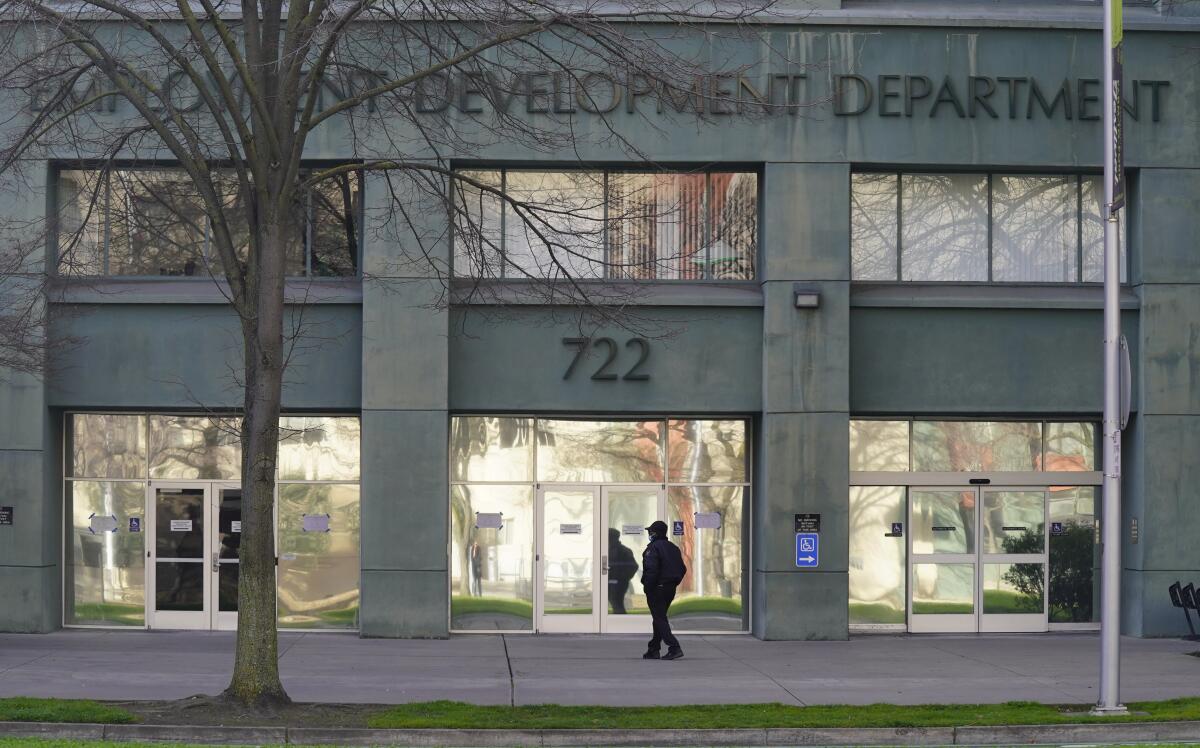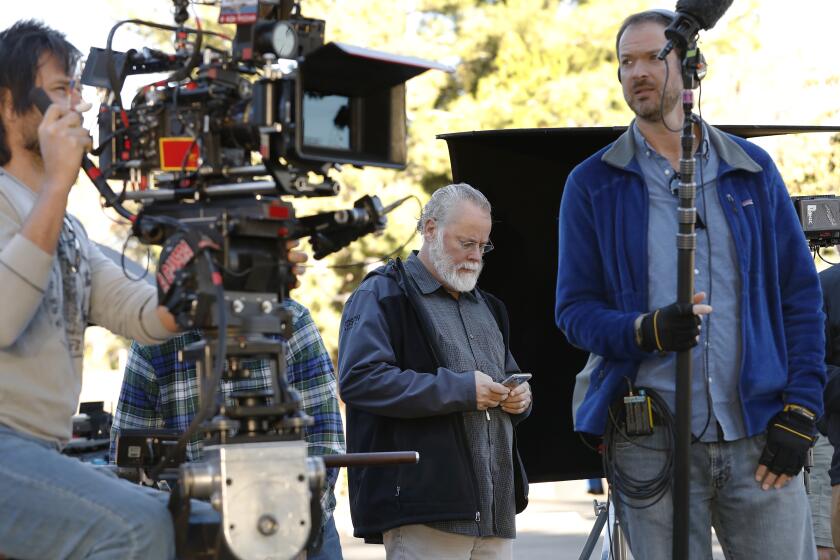What’s going on with loan-out corporations? Hollywood workers seek answers

- Share via
Hollywood labor groups are seeking answers amid an apparent crackdown by the state of California on the use of so-called loan-out corporations — a long-standing industry practice that helps actors, screenwriters and other entertainment workers organize their employment records and qualify for tax benefits.
Over the weekend, Hollywood payroll company Cast & Crew sent a memo to workers alerting them that the California Employment Development Department had said it was reviewing loan-out company activity, spurring swift responses from various organizations advocating for entertainment workers.
“It is anticipated that this will quickly become an industry-wide issue,” the memo read.
“This challenge appears to be targeted generally to the use of loan-out corporations in the entertainment production industry and would have a major impact on loan-outs working on countless productions in California.”
Cast & Crew added that it is “actively contesting the EDD’s position as well as working with union leadership and other entertainment companies to address this extremely important issue.”
Studios and workers alike were eager to restart film and TV production after the Hollywood strikes concluded. What’s taking so long in California?
Many actors, screenwriters and other entertainment workers are self-employed under their own loan-out corporations, which are single-person companies through which they “lend” their services to various film, TV and stage productions. They also qualify for certain tax breaks not otherwise available to individuals.
In a statement provided to The Times, the California EDD said Tuesday that it does not intend to “ban” loan-out companies in the state.
“We understand the great importance of California’s film and television industry and are proud of our work to support California’s employers and industries,” the EDD said after an influx of inquiries regarding its ongoing review of loan-out corporations.
“Our commitment is to ensure these taxes are collected according to state law. ... We will continue our communication with industry representatives to ensure their concerns are heard and understood. We are optimistic that this dialog will help bring further clarity and information for the benefit of everyone who works in one of California’s most iconic industries.”
Because entertainment workers generally operate in a gig-based economy — hopping from one project to the next — it’s rare that they are consistently employed by a single company or entity, explained Kevin Klowden, executive director of MI Finance at the Milken Institute.
For this reason, Klowden continued, Hollywood players often create loan-out corporations to keep their employment records in one place.
If filming in Southern California dips below a critical level for too long, the industry’s essential talent will drift away.
Without banning loan-outs altogether, the EDD could hobble the established Hollywood system by requiring such corporations to pay certain taxes and fines, Klowden said.
He noted that this is probably part of a larger effort by Sacramento to penalize firms that hire workers for a number of short-term jobs without full benefits — which, on the surface, loan-out companies could appear to be.
Gig workers in the entertainment industry typically depend on unions to provide them with insurance and other benefits.
Hollywood labor unions representing performers, writers, directors and crew members have responded to the EDD’s actions.
“IATSE is working closely with our allies in the entertainment industry labor movement, as well as Cast & Crew and other payroll companies, to closely monitor the EDD review of loan-out corporations and determine next steps,” said the International Alliance of Theatrical Stage Employees, which represents more than 60,000 crew members in the film and TV industry.
Performers union SAG-AFTRA said Saturday that it has been in contact with other Hollywood labor organizations to discuss the matter.
2023’s dual strikes by writers and actors created a dry spell for everyone in Hollywood. Crew members are still feeling the aftershocks.
“We are all prepared to explain the history, validity, and importance of loan-out companies to entertainment industry workers, and highlight the devastating impact disregarding these entities would have on the industry,” said the Screen Actors Guild-American Federation of Television and Radio Artists, which represents about 160,000 performers.
The Writers Guild of America, West, added that it would “take any necessary action to preserve the long-standing use of loan-outs in this industry.”
The Directors Guild of America said it is also “monitoring the situation and working in collaboration with the other unions and guilds to investigate and respond in order to protect entertainment industry workers.”
Over the last week, guild members have taken to social media to post a memo from IATSE Local 695 (representing sound and video technicians) warning members that such a move by the EDD “would fundamentally change” the way that business is conducted in the entertainment industry.
According to Cast & Crew, loan-out corporations that incur notices from the EDD will have the opportunity to file a petition opposing the change.
So far, no alterations to current employment practices have gone into effect, according to a union source who was not authorized to comment.
More to Read
Inside the business of entertainment
The Wide Shot brings you news, analysis and insights on everything from streaming wars to production — and what it all means for the future.
You may occasionally receive promotional content from the Los Angeles Times.














